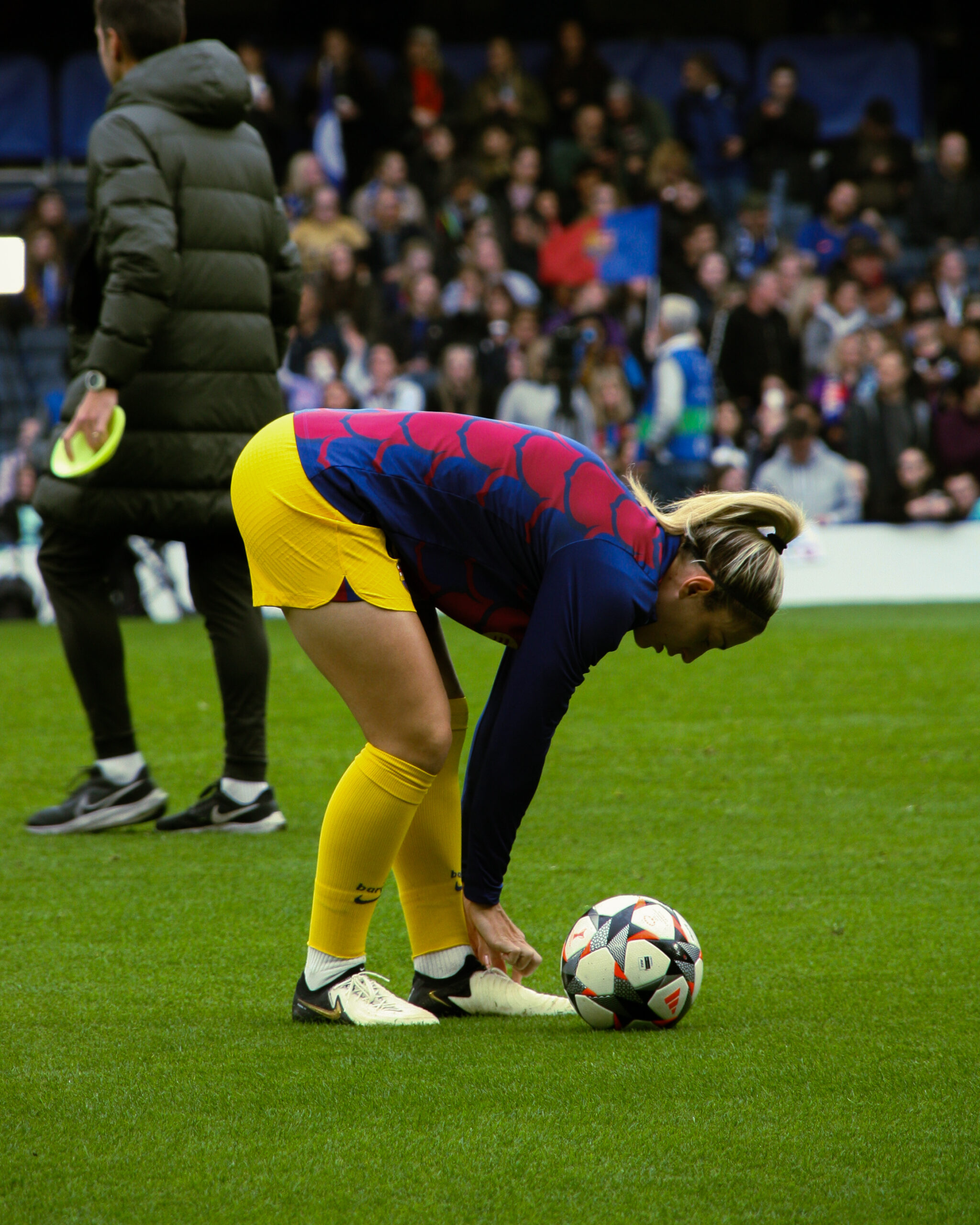FC Barcelona Femení were never supposed to look fragile. This was a team that redefined dominance, one that made women’s football feel unstoppable – winning trebles, smashing records, and setting standards no one else could touch.
But right now? It feels like someone cut the power while the stadium was still packed.
A Squad Stretched To Breaking Point
The squad is down to just seventeen senior players, heading into a season where they’ll be fighting on four fronts. That’s not a roster built for ambition; that’s one injury crisis away from collapse.
And the departures haven’t been minor. Jana Fernandez, Ingrid Engen, Ellie Roebuck, Fridolina Rolfo, Bruna Vilamala, and Martina Fernandez are all gone, with barely a handful of promotions and the signing of Laia Aleixandri to soften the blow.
Debt, Mismanagement, and a Broken System
The reason is as bitter as it is familiar. Financial mismanagement at the club has left the women’s side chained to the men’s wage cap.
Every registration, every contract renewal, every signing has to fit under the same La Liga Fair Play limit. And when the men’s team needs space for their big-money moves, the women pay the price.
Barcelona’s debt now exceeds €1 billion, worsened by the Camp Nou renovation and sky-high wages, and even the termination of Fernandez’s contract brought in nothing.
Reports say the women’s team needs nearly €1 million just to balance its accounts – a figure that points to more exits and looming wage cuts.
It feels brutal because it is.
And the cracks run deeper than just the first team. Barcelona B, meant to be the feeder system for the next generation, currently has fewer than twelve players available. That’s not a development pathway, that’s a dead end.
Add to that the fact that, with less than two weeks before the season kicks off, there is still no confirmed broadcast deal for Liga F. The possibility that the league could begin without clarity on who, if anyone, will air the matches is nothing short of shameful.
A Wider Failure in Spanish Football
This is not just about the size of the squad – it’s about what it represents.
FC Barcelona Femení were supposed to be proof of what the women’s game could be when invested in properly. Instead, they’ve become a warning sign of how quickly success can be dismantled when the structures around it remain unequal.
And it’s not just the club that’s failing them.
The RFEF’s decision to appoint Sonia Bermudez as national team coach, despite her lack of professional coaching experience and her vocal support of Luis Rubiales after the World Cup scandal, underlines a federation still unwilling to take women’s football seriously.
What’s Left of a Dynasty
Yes, the core is still there – Alexia Putellas, Aitana Bonmatí, Mapi Leon, Caroline Graham Hansen, Salma Paralluelo – but it’s a core stretched thin.
You can’t build a dynasty if you’re constantly patching holes just to stay afloat. And with key contracts up for renewal in 2026, the club is flirting with the possibility of losing its identity altogether.
This isn’t a dip. It’s a crisis. And if Barcelona, of all clubs, can let their women’s team reach this point, what message does that send about the game’s priorities?



